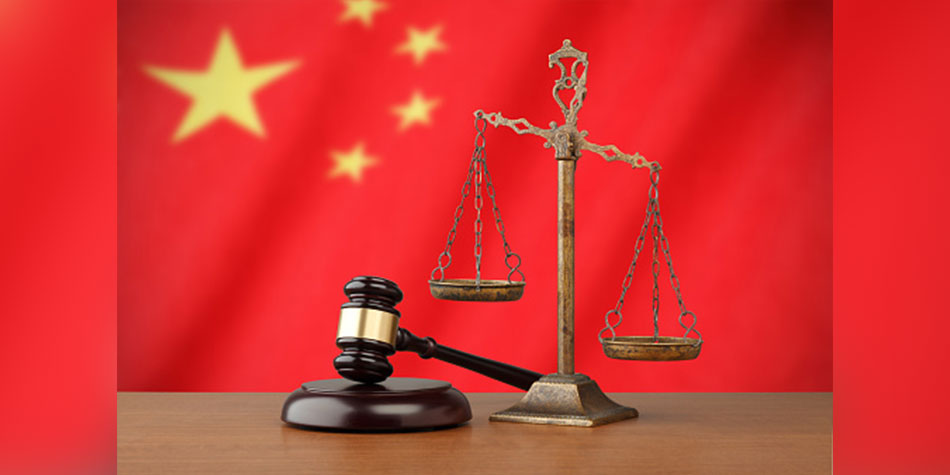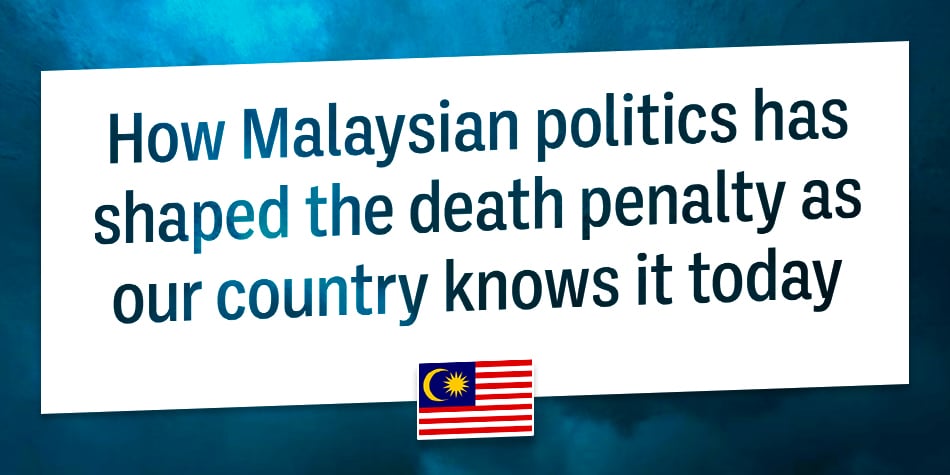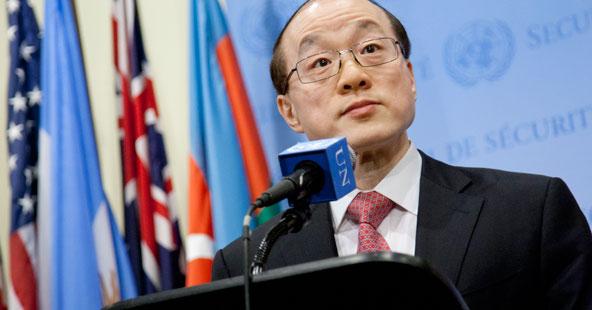
The Status Quo of China’s Death Penalty and the Civil Society Abolitionist Movement
Asia
Translation of an article on the death penalty in China for the Beijing Olympics 2022, initially published by Taiwan Alliance to End the Death Penalty in October 2021 for World Day.
China: The country with the most death sentences and executions
Chinese criminal law is severe, with many crimes punishable by death. The Penal Code of 1979 had 74 offenses punishable by death, and in the Penal Code of 1997, which is still in force today, 68 crimes were punishable by death, including 24 violent crimes and 44 non-violent crimes.
It was revised in 2011, the death penalty was retained, but the number of crimes punishable by death was reduced by 13. When it was revised in 2015, the death penalty was further reduced by 9 offenses, bringing the number of crimes punishable by death to 46 today, including 24 violent crimes and 22 non-violent crimes.
Although the number of crimes punishable by death has been reduced, this has not had a significant impact on the number of death sentences and executions, as the death penalty is rarely carried out for certain crimes in practice, such as the offense of imparting criminal methods, the crime of stealing ancient relics, ancient vertebrate fossils, etc.
China is undoubtedly the country with the most death sentences and executions, but the state media and courts only report or publish a very small number of death penalty cases. They do not officially publish the number of death sentences, of executions, or death sentences by province, crime, age, gender, income, etc.
The real key event for the reduction in the number of death sentences and executions in China occurred in January 2007, when the Supreme People’s Court took over the power to review death sentences it had delegated for 27 years. Previously, the appeal procedure for the vast majority of death sentences was carried out by the provincial courts, and the second instance and the final appeal were carried out by the same court. There was no procedural justice or substantive safeguards, and a large number of miscarriages of justice occurred as a result.
Composition of the Supreme People’s Court for the Review of Death Sentences
The Supreme Court won the right to review death sentences and hundreds of judges were selected across the country to form a death penalty review committee to determine the basic principle of “kill less and kill with caution”.
In 2012, the Code of Criminal Procedure was amended accordingly, stipulating that the final appeal of all death penalty cases must be tried by the Supreme People’s Court; judges must question the accused and listen to the opinions of lawyers when reviewing the death sentence; apply higher evidentiary standards in death penalty cases and take the initiative to establish a system of exclusion of unlawful evidence in death penalty cases. These initiatives and the revision of the Code of Criminal Procedure have indeed reduced abuses of the death penalty to some extent.
However, estimates by groups such as Amnesty International of the number of executions in China are far lower than the actual number. Based on our experience as lawyers in China and interviews with lawyers, judges and prosecutors, we roughly estimate that in the more than 20 years up to 2007, at least 12,000 people were executed every year. At least 8,000 people have been executed every year since 2007. According to the “World Death Penalty Report 2020” published by Amnesty International in 2021, 483 people were executed worldwide in 2020, excluding China, North Korea, Syria and Vietnam, which keep the death penalty classified as a defense secret. Given China’s demographic base, it can be said that the number of executions in China is probably around 90% of the global total.
In recent years, exposure of miscarriages of justice, including the Nie Shubin case, the model Hugjile case, the Zhang Yuhuan case and the Jiangxi Leping case, have attracted much attention. In this regard, we must not only affirm its positive meaning, but also have a clear understanding of it. These wrongful convictions all took place before the Supreme Court regained the right to review all death sentences. Due to complaints and continuous appeals from lawyers, academics and journalists, they became public, thus favoring new trials and the commutation of the sentence.
In some cases, there was severe torture and insufficient evidence, so the court at the time did not dare to pronounce the death penalty with immediate execution, but rather sentenced the defendants to death with two years reprieve. In cases where a doubt remains, instead of declaring the accused sentenced to death with immediate execution, in accordance with the law, “suspected cases benefit from a two-year reprieve”, which is a judicial practice with Chinese characteristics.
There are many such cases, and the wrongful death sentences that have been corrected are only a very small part of them.
The “Political and Legal Committee” which directly interferes with the judiciary
The problem in China is not only the large number of death sentences, the wide range of crimes punishable by death, the non-disclosure of data and the lack of protection of the human rights of people facing the death penalty. The fundamental reason lies in the institutional and structural shortcomings of the Chinese criminal justice system. China does not have an independent judiciary.
The courts are under the command of the Party committee and the government. The Communist Party’s “Political and Legal Committee” is responsible for directly controlling public security departments, procuratorates, courts, and judicial administration departments. They may even interfere with the judge’s decision. In the “Political and Legal Committee” system, the head of the public security department ranks higher and has more power than the president of the court.
Therefore, there is a strange phenomenon in criminal justice that “the police have more say than the judge”. Murder cases must be solved, the deadlines and targets for solving cases and other policies have also led to a large number of unfair, false and wrongful convictions in the context of the lack of democratic accountability, separation of powers and controls from China. Additionally, there are loopholes in the evidentiary system, institutional torture, restrictions on the role and rights of criminal defense attorneys, and widespread judicial corruption, etc., which have led to the continued emergence of wrongful convictions, including in capital cases, but it is difficult to correct these miscarriages of justice.
The reform of the Chinese judicial system started in 2012 has little impact on death sentences and the “rule of the exclusion of evidence illegally obtained” is difficult to implement in judicial practice. In January 2020, Zhou Qiang, President of the Supreme People’s Court, said at the National Conference of Presidents of the High Court: “We must unswervingly adhere to the Party rule and state policy on the death penalty, and resolutely impose death sentences on a very small number of people: criminals who have committed serious crimes” to avoid social disapproval.
There are, however, practices such as “buying life with money” and “buying a sentence with money”. Under the direction of this policy of emphasizing the death penalty, some people we have defended who should not have faced capital punishment were sentenced to death.
China Against the Death Penalty
China Against the Death Penalty, founded by Dr. Teng Biao in 2010, is the only non-governmental organization in China that focuses on the death penalty. Since its inception, China Against the Death Penalty has been committed to promoting the concept of abolition of the death penalty in China, providing legal aid to those facing the death penalty, organizing death penalty case studies, writing investigative reports on the death penalty in China, participating in the World Congress Against the Death Penalty, and becoming a member of the Asian Network Against the Death Penalty (ADPAN).
China Against the Death Penalty shared the United Nations Human Rights Council resolutions on the death penalty to Chinese lawyers and citizens working on human rights issues, introduced the international trend and experience of abolition of the death penalty, and exchanged and learned from criminal defense attorneys in the effective defense of capital cases. The Leng Guoquan case (Liaoning), the Leping Four Citizen case (Jiangxi) and the Yang Ming case (Guizhou), which were followed and represented by China Against the Death Penalty, were successively rehabilitated. These cases were all cases in which innocent citizens were sentenced to death with immediate execution or with a two-year reprieve. In the case of domestic violence victim Li Yan who killed her husband (Sichuan) and the murder of Zhang Haofeng’s father and son by a burglar (Henan), the defendant had his death sentence commuted to a suspended death sentence.
The “709” Arrests: Human Rights Lawyers Are at Risk
Since 2013, the Chinese government has begun to tighten social control and suppress civil society. Many Chinese non-governmental NGOs have been banned, their offices raided and their staff arrested; Chinese human rights lawyers involved in the campaign against the death penalty also suffered a sad fate. In 2017, the implementation of the Law on the Administration of Domestic Activities of Foreign NGOs had serious repercussions on foreign NGOs that once contributed to the construction of Chinese civil society. Most of them have withdrawn from China or have gradually reduced their activities in China. Questioned or summoned by the police for their online comments, and even sentenced to prison for the crime of causing quarrels and unrest, Chinese civil society and human rights lawyers have found themselves in a situation as bad as 1989.
The death penalty remains high, the justice system is becoming increasingly partisan, and China’s justice system is making great strides. An even more appalling genocide has taken place in Xinjiang, the death sentence of Uyghurs and other ethnic minorities for endangering national security and extrajudicial executions, of which the outside world is even less aware.
This environment has made China Against the Death Penalty’s activities difficult. Seminars and annual meetings were monitored, and later not allowed at all. Some lawyers and human rights defenders from the NGO have had their lawyers’ licenses revoked and have been prevented from leaving the country. Some human rights defenders with whom we have worked for a long time are still behind bars. Under these circumstances, we had no choice but to develop activities on the Internet to spread the idea of the abolition of death, conduct online exchanges on the subject of the death penalty and cooperate with offline discussions on a small scale to continue to promote legal aid for individual cases.
Around 108 countries around the world have completely abolished the death penalty and 144 countries have abolished the death penalty in law or in practice. The worldwide movement for abolition has achieved remarkable results. Although there is still a long way to go to reduce the death penalty in China until it is abolished, as pioneers of the Chinese abolitionist movement, we will work hard on this thorny road.







